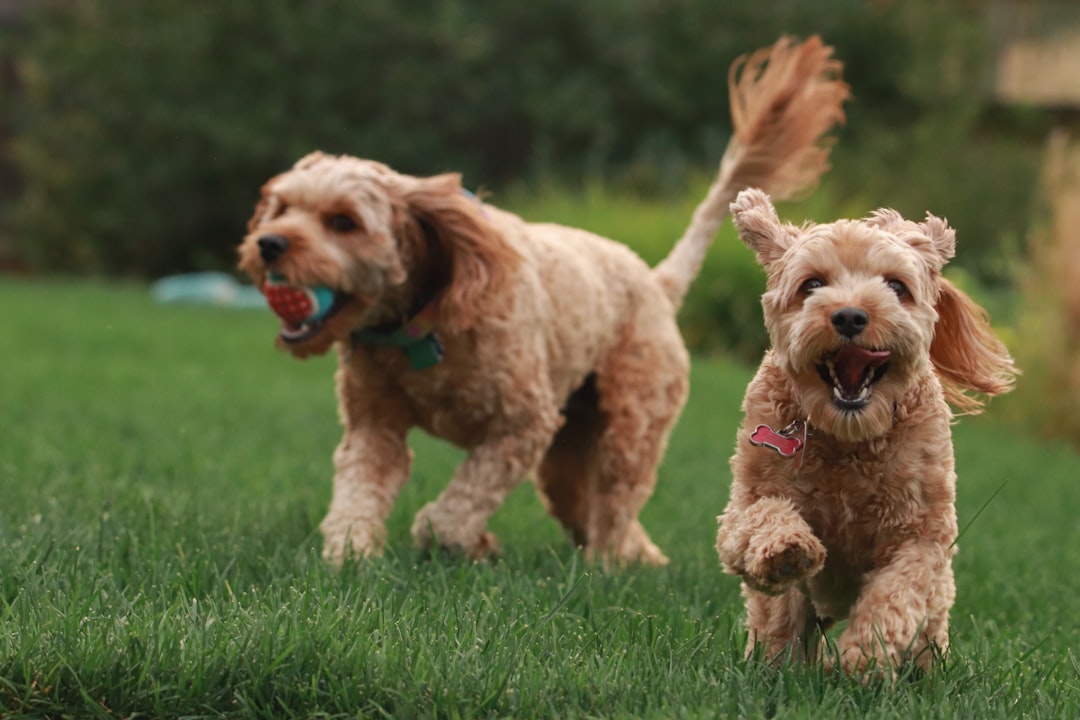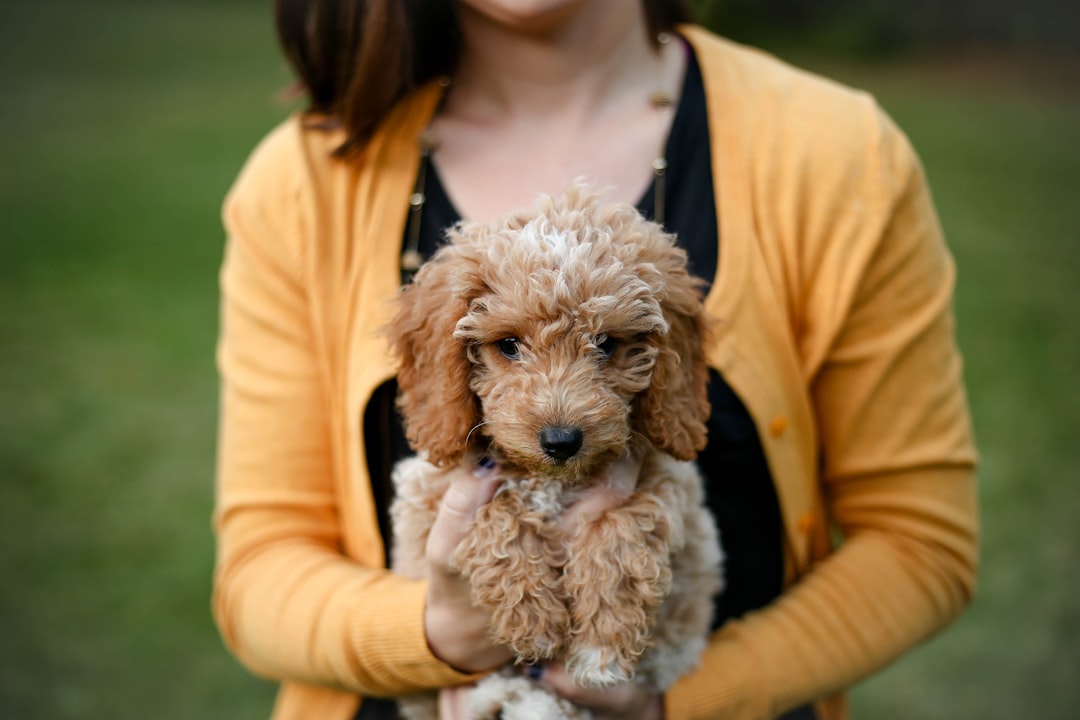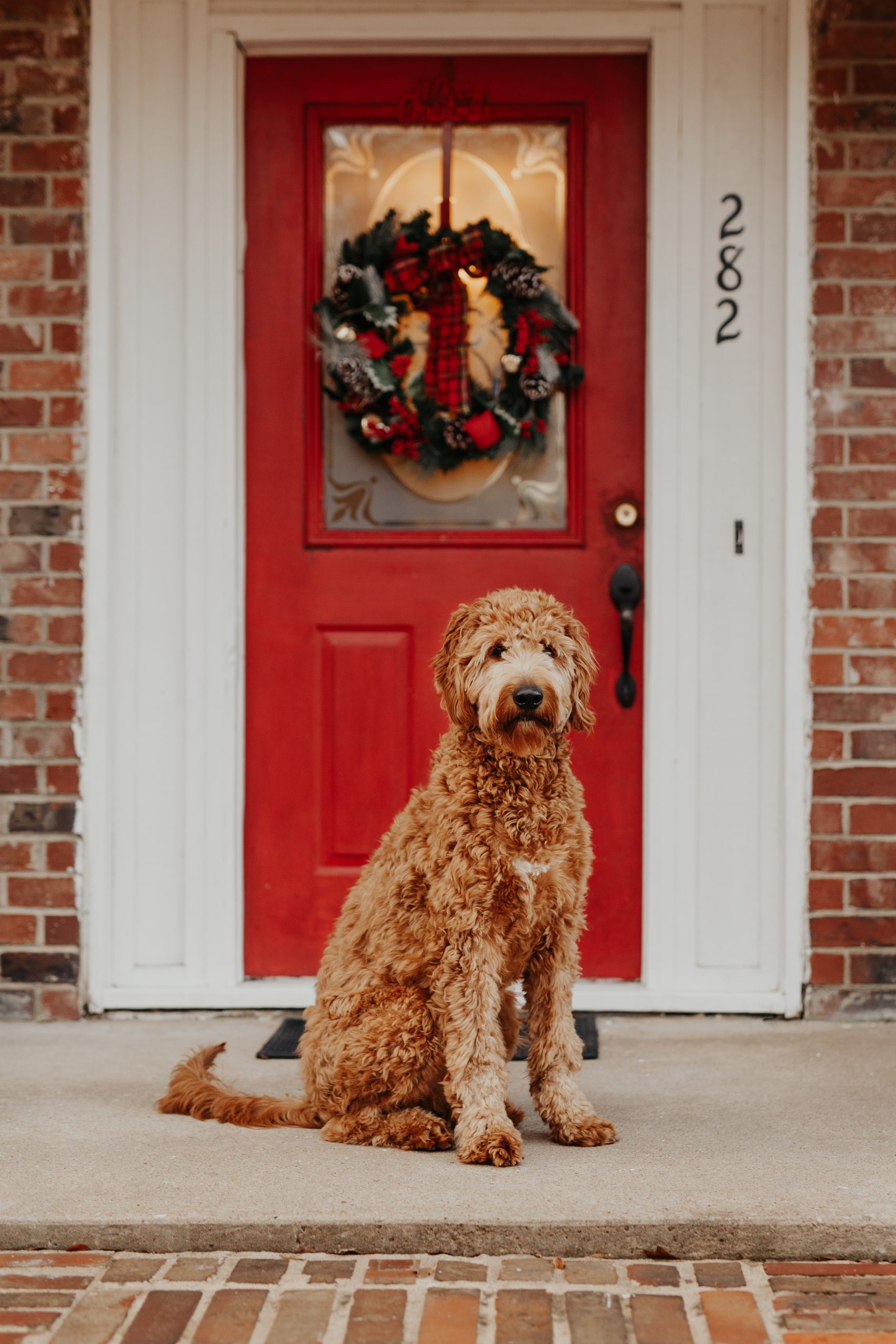The Ultimate Guide to Goldendoodles: Origins, Characteristics, and Care Tips
An introduction to the Goldendoodle breed, including their origins as a crossbreed between poodles and golden retrievers, their diverse characteristics and coat types, and their suitability as family pets with hypoallergenic qualities.
Breed Origins
The Goldendoodle breed has a fascinating origin story, dating back to the 1990s when breeders first started crossing poodles with golden retrievers. This deliberate crossbreeding aimed to create a larger alternative to the popular cockapoo, resulting in the charming and affectionate Goldendoodle we know today. The breed’s roots can be traced to this intentional blending of two beloved dog breeds, each known for their unique and desirable traits.
Although the Goldendoodle is widely recognized and celebrated by the American Canine Hybrid Club, it is interesting to note that it is not formally acknowledged by the American Kennel Club (AKC) or other international purebred dog registries. This distinction highlights the breed’s unique standing and its roots as a purposeful crossbreed, distinct from traditional purebred dogs.
Furthermore, the Goldendoodle breed was meticulously developed to embody a harmonious blend of the traits common to both the poodle and the golden retriever. This deliberate combination has resulted in a breed with a well-proportioned physical appearance and a wide array of coat types, colors, and sizes, reflecting the diverse characteristics of its founding breeds. For example, the Goldendoodle’s coat can range from wavy to curly and comes in various colors, adding to the breed’s alluring charm and appeal. The deliberate efforts to infuse these traits have contributed to the Goldendoodle’s unique and captivating presence as a beloved companion and family pet.
Breed Characteristics
The Goldendoodle breed is known for its unique blend of traits inherited from its Poodle and Golden Retriever parents. This crossbreed typically has a thick, shaggy coat that comes in a variety of colors, including cream, red, apricot, and black. One of the most striking characteristics of Goldendoodles is their hypoallergenic and low-shedding coat, making them a popular choice for individuals with allergies. Their coat qualities are a result of careful breeding to ensure that they have hair instead of fur, providing a favorable option for allergy sufferers.
In addition to their distinctive coat, Goldendoodles also exhibit physical characteristics that align with their high energy levels and active nature. They are built with adequate bone and muscle, reflecting traits of an endurance trotter. This physical build enables them to engage in their active play style, showcasing their agility and stamina. These traits make them well-suited for various activities such as hiking, running, and playing fetch, all of which contribute to their physical and mental well-being.
Temperament Traits
Goldendoodles have a delightful temperament that makes them ideal family pets. Their intelligence, obedience, and affectionate nature make them wonderful companions for families of all sizes. For example, their loving and friendly disposition allows them to get along well with children, other pets, and visitors, making them a great addition to any household. Their loyalty and eagerness to please also contribute to their exceptional reputation as amiable and devoted pets.
In addition to being great family pets, Goldendoodles also exhibit the stability and reliability required for service and therapy work. Their trustworthy and well-rounded nature enables them to excel in roles where they provide comfort and support to individuals in need. For instance, their friendly and sociable characteristics, coupled with their intelligence, make them well-suited for tasks that involve interaction with people, such as therapy visits to hospitals or nursing homes. This combination of traits further highlights the versatility and adaptability of the Goldendoodle breed, making them not just beloved family pets, but also valuable contributors to various service roles.
Overall, the Goldendoodle’s temperament is a harmonious blend of intelligence, warmth, and reliability, making them not only wonderful companions for families but also ideal candidates for service and therapy work due to their trustworthy and well-rounded nature.
Generations of Goldendoodles
Goldendoodles come in various generations, each with its own unique characteristics and potential health considerations. The labeling system for Goldendoodle generations is quite specific, with each generation denoted by a letter and a number, along with the letter “B” for backcross. For instance, the F1 generation refers to the direct result of breeding a golden retriever with a poodle, while the F1B generation is the first generation backcross with a 50% chance of being hypoallergenic. This means that if you are looking for a Goldendoodle with specific traits, understanding the generation types is crucial in making an informed decision about the breed that best fits your lifestyle and preferences.
Moreover, when it comes to hypoallergenic and non-shedding Goldendoodles, the F1B, F2B, and F1BB generations are considered the best choices. These generations have been found to exhibit a higher likelihood of being suitable for allergy sufferers due to their specific coat qualities. Understanding the characteristics and coat types associated with each generation is essential in selecting the right Goldendoodle for your home and family. For example, if you’re seeking a Goldendoodle with minimal shedding and hypoallergenic qualities, the F1B, F2B, or F1BB generation may be the ideal choice for your needs, ensuring a harmonious and comfortable living environment for both your family and your furry companion.
 Care and Health Considerations
Care and Health Considerations
When it comes to caring for Goldendoodles, it’s important to ensure they get their daily exercise to keep them fit and mentally stimulated. A good 30 minutes of playtime and physical activity is recommended to maintain their overall health and happiness. This can include activities such as walks, runs, or engaging in interactive games with their owners. For example, taking them to a dog park where they can socialize and play with other dogs can be a great way for them to burn off energy.
In terms of health considerations, Goldendoodles, like many breeds, can be susceptible to certain health conditions. Some common issues to watch out for include hip dysplasia, where the hip joint doesn’t develop properly and can lead to discomfort and mobility problems. Ear infections are also something to be mindful of, particularly in Goldendoodles with floppy ears, as they can be prone to moisture buildup and subsequent infections. Additionally, allergies are a concern for some Goldendoodles, so it’s important to be aware of any signs of allergic reactions and consult with a veterinarian if necessary.
Lastly, positive reinforcement training and early socialization are vital for the well-being of Goldendoodles. This breed thrives on positive interactions and consistency in training. Early socialization helps them become well-adjusted, confident, and well-behaved adult dogs. It’s important to expose them to various environments, people, and other animals from a young age to ensure they grow up to be friendly and adaptable pets in different situations.
These care and health considerations play a significant role in maintaining the overall well-being of Goldendoodles, ensuring they lead happy, healthy, and fulfilling lives with their families. [1]
 Frequently Asked Questions (FAQs)
Frequently Asked Questions (FAQs)
- What are the origins of the Goldendoodle breed? The Goldendoodle is a crossbreed developed in the 1990s by crossing poodles with golden retrievers to provide a larger alternative to the popular cockapoo. It was recognized by the American Canine Hybrid Club but not by the AKC or other international purebred dog registries.
- What are the key characteristics of Goldendoodles? Goldendoodles have a thick shaggy coat and come in various colors. They possess hypoallergenic and low to no shed coat qualities, making them suitable for allergy sufferers.
- What is the temperament of Goldendoodles like? Goldendoodles are intelligent, obedient, and loving, making them great family pets. They are friendly, sociable, and make excellent companions, displaying loyalty and eagerness to please.
- Are Goldendoodles recognized by the AKC or other international purebred dog registries? Goldendoodles are not recognized by the AKC or other international purebred dog registries, but they are acknowledged by the American Canine Hybrid Club.
- What are the different generations of Goldendoodles and their characteristics? Different generations of Goldendoodles have varying characteristics and potential health issues. The best generation for hypoallergenic and non-shedding dogs are F1B, F2B, and F1BB, depending on the coat desired.
- What are the grooming requirements for Goldendoodles? Goldendoodles need daily brushing to prevent their coat from matting.
- Are Goldendoodles hypoallergenic and suitable for allergy sufferers? Goldendoodles possess hypoallergenic and low to no shed coat qualities, making them suitable for allergy sufferers.
- What are the common health conditions associated with Goldendoodles? Goldendoodles can be prone to certain health conditions such as hip dysplasia, ear infections, and allergies.
- How much exercise do Goldendoodles need on a daily basis? Goldendoodles need about 30 minutes of daily play and exercise to stay fit and entertained.
- What is the ideal living environment for Goldendoodles? Goldendoodles require room to roam and play, making them a great match for active families.


